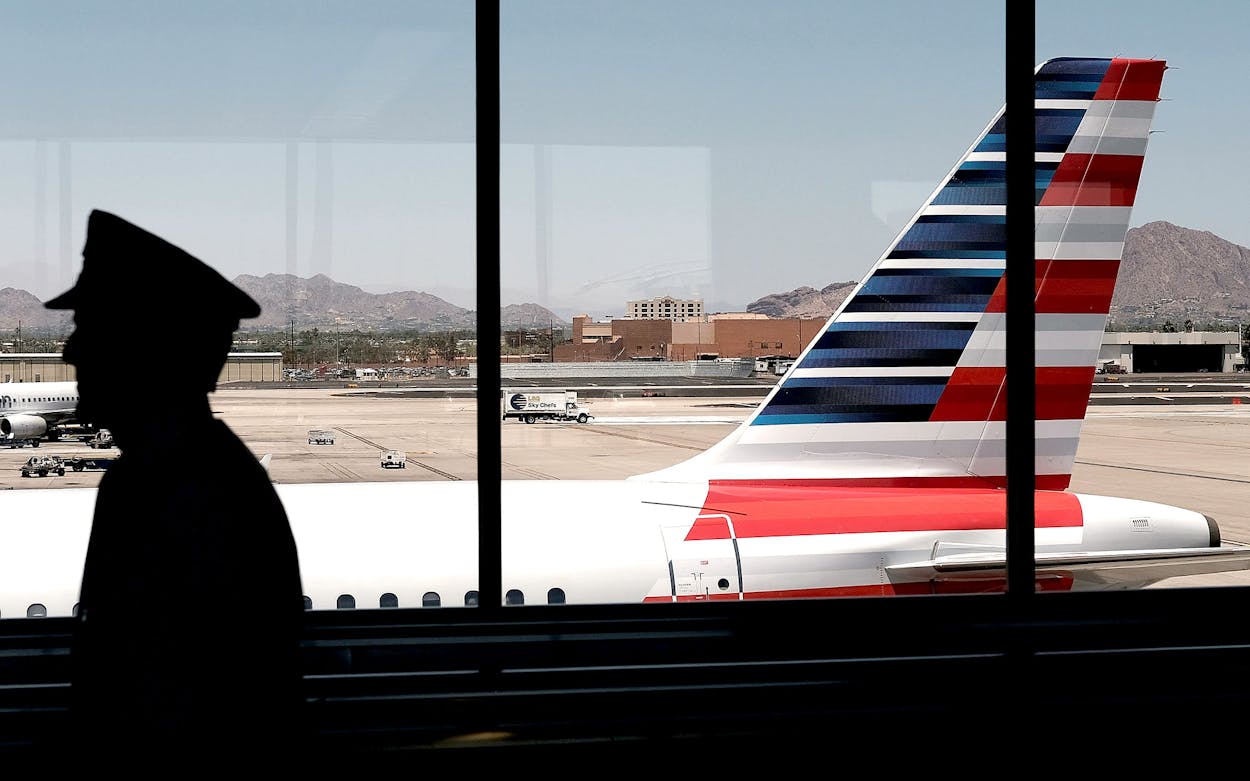There was a time when air travel was a stylish event. Pilots were cast as debonair heroes, and passengers boarded planes dressed like they were going out on the town. In the decades since, flying has become less of a luxury and more of a mission to shove as many human bodies as possible into a metal tube before sending it sailing through the sky.
Arilines are expensive to operate, so if removing a couple of inches of legroom means cramming an extra row of seats on the plane, customers will have to scrunch a bit more. Those inconveniences related to cost-cutting have become pretty standard—as have issues around aging equipment like broken seats or defective in-flight entertainment). But the past year of turbulent airline-related PR nightmares has left airlines looking for ways to improve relationships with passengers.
American Airlines is offering its flight attendants a new tool to address some of the lower-level concerns: According to the Dallas Business Journal, the company is rolling out software called iSolve that will allow flight attendants to offer passengers frequent flier miles in an attempt to resolve smaller complaints aboard flights. The new software, the Journal says, will allow flight attendants to give passengers who are enrolled in the AAdvantage miles on the spot.
This seems like a good idea as airlines look to regain trust with passengers after high-profile missteps. There are a slew of valid issues with air travel that—instead of requiring a public mea culpa from the CEO—could be assuaged by a flight attendant offering some sort of resolution (aside from suggesting customers email someone at customer service when the plane lands) if the in-flight WiFi isn’t working.
American’s program is part of a series of improvements from not just the Dallas-based airline, but the industry as a whole. Last week, American announced plans to give its staffers “de-escalation” training, which would be a welcome thing for the customers whose interaction with gate agents and flight attendants included arguments over strollers and cellos that got out of hand and ignited social media firestorms. United changed its overbooking policy to increase the amount of compensation for displaced passengers to as much as $10,000 after a passenger was bloodied as he was dragged from a flight. Southwest ended the policy of overbooking flights altogether in May, after the United incident.
American’s new policy may be the most direct and concrete change an airline is offering to customers in real time, though, and it makes sense as to why: Southwest, Delta, Alaska, and Jet Blue all rank above average in customer satisfaction among U.S. airlines, according to J.D. Power, while American and United both come in below the segment average for 2017. That makes sense for United, which has been dealing with the public relations nightmare since the April incident, but it suggests that American, without a defining problem, has problems to address of its own. Offering some bonus miles to people before the inconveniences start piling up seems like a good place to start.








